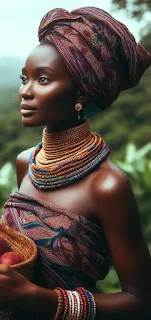Equatorial Guinea Spanish Speaking Population
Equatorial Guinea's history as a Spanish colony significantly shaped the development of its Spanish variety.
Equatorial Guinea consists of a continental territory and five inhabited islands, one of Africa's smallest countries by area and population. Equatorial Guinea was colonized by several colonial powers at different times in its history. The major colonial powers controlling various parts of Equatorial Guinea now include Portugal, Spain, France, and Britain.
In the early 1470s, Portuguese explorers landed on Bioko Island, and Portugal soon after established control of the island and other areas of modern Equatorial Guinea. In 1778, Portugal ceded its colonial hold over present-day Equatorial Guinea to Spain in the Treaty of El Pardo. Spain took control of Fernando Po (now Bioko Island) and later expanded its presence to other parts of Equatorial Guinea.
France controlled the coastal region of Río Muni in the 1800s, which later became part of Equatorial Guinea when the country gained independence. The British briefly appeared on Fernando Po during the 1900s but later ceded the island to Spain as part of a diplomatic agreement.
Colonial powers introduced their languages, customs, and religions to Equatorial Guinea. Spanish is one of the official languages, and the country has a substantial Catholic population due to Spanish influence. Colonial powers introduced education systems. These systems continue to shape the country's educational landscape, with many Equatorial Guineans receiving education in Spanish.
Equatorial Guinea is a country where Spanish, a language inherited from its colonial past, is widely spoken, alongside indigenous languages like Fang and Bubi. The use of Spanish in education, government, and daily life is a testament to the country's history and the lasting impact of Spanish colonialism. Despite efforts to preserve and promote indigenous languages, Spanish remains the dominant language in Equatorial Guinea and plays a significant role in shaping the country's cultural identity.
The Spanish spoken in Equatorial Guinea is called Equatoguinean or Equatorial Guinean Spanish. It is a variety of Spanish influenced by the historical and cultural context of Equatorial Guinea. While it shares many similarities with standard Spanish, it may have distinct vocabulary, pronunciation, and regional expressions that reflect the country's unique linguistic and cultural heritage.
Equatorial Guinean Spanish is influenced by the local languages spoken in the region, such as Fang and Bubi. As a result, you may find some loanwords or linguistic features from these indigenous languages incorporated into Equatorial Guinean Spanish. Equatorial Guinean Spanish remains part of the broader Spanish language family but has developed its own characteristics that distinguish it from the Spanish spoken in Spain or other Spanish-speaking countries.
Equatoguinean Spanish exhibits regional variations in vocabulary, pronunciation, and expressions. Different country areas may have linguistic nuances, which add depth and richness to the language. These variations are influenced by local cultures, dialects, and historical developments.
It is important to note that Spanish is one of the official languages in Equatorial Guinea and is widely used in government, education, and media. Despite variations in language proficiency across different regions and ethnic groups, Spanish remains a widely understood language for official purposes in the country. Spanish holds a significant place in Equatorial Guinea's linguistic landscape.
Did you know?
Equatorial Guinea's history as a Spanish colony shaped the development of its Spanish language variety. Equatoguinean Spanish plays a crucial role in Africa's 44th smallest country.

